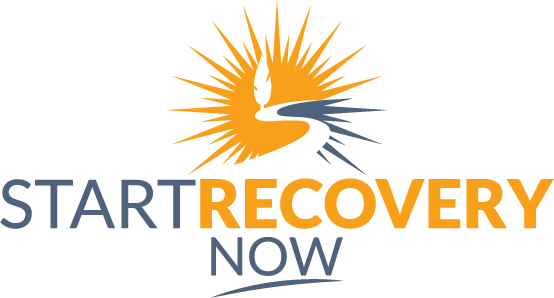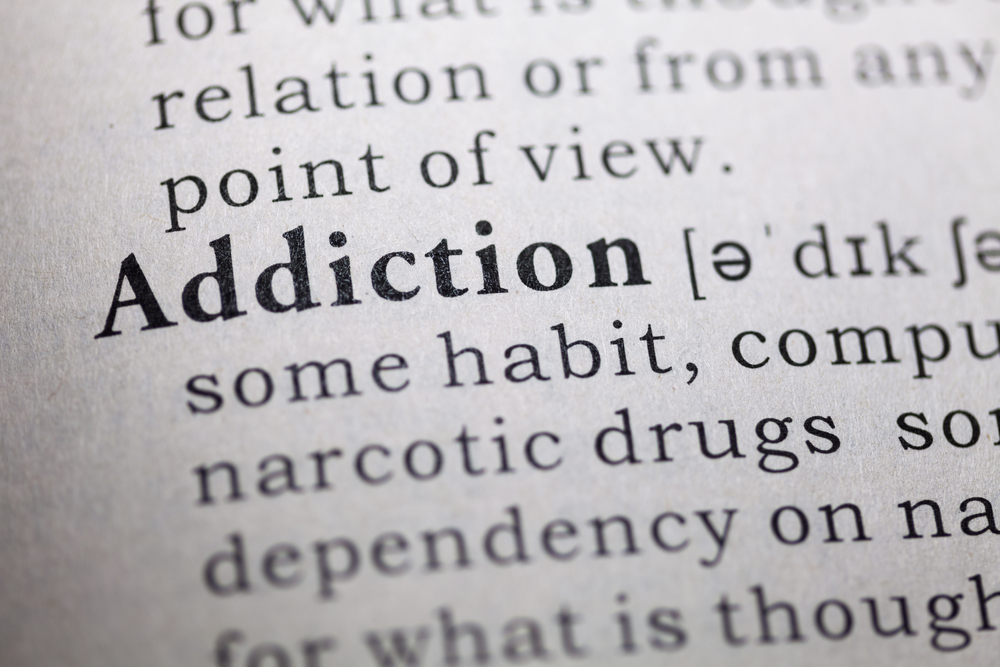Exploring the Diverse Types of Addiction Therapy for Effective Recovery
Navigating the landscape of addiction therapy can be daunting, yet […]
Navigating the landscape of addiction therapy can be daunting, yet understanding the types available is crucial for recovery. This article cuts through the complexity to provide you with a concise guide to the different types of addiction therapy. Without delving deep into the specifics here, expect to learn how each approach, tailored to individual needs, can significantly influence the journey toward recovery.
Key Takeaways
- Behavioral therapies like Cognitive Behavioral Therapy (CBT) and Dialectical Behavior Therapy (DBT) form the core of addiction therapy, focusing on changing attitudes towards drug use, teaching coping strategies, and improving emotional regulation and interpersonal skills.
- Family dynamics significantly influence addiction recovery with family therapy improving communication, establishing healthy interactions, and helping families support the individual’s recovery.
- Medication-Assisted Treatment (MAT) is an evidence-based approach that integrates medication with counseling for addiction treatment, with MAT medications like methadone, buprenorphine, and naltrexone playing crucial roles in managing withdrawal symptoms and reducing cravings.
Exploring Behavioral Therapies in Substance Abuse Treatment
Behavioral therapies play a significant role in addiction treatment, particularly for those struggling with drug and alcohol addiction. They serve as the compass guiding individuals through the labyrinth of substance abuse, towards the beacon of sustainable recovery. These scientifically validated methods aim to:
- Reorient attitudes and behaviors associated with drug abuse
- Promote abstinence
- Bolster the individual’s resilience to life’s stressors, triggers, and urges.
As unique as each person’s journey towards recovery, so are their therapy needs. Personalized treatment is paramount in addressing the specific challenges that each individual encounters, thereby enhancing the prospects of successful treatment outcomes. A myriad of treatment modalities are available for substance use disorders, offering an array of behavioral therapies tailored to the individual’s needs, situation, and history of addiction.
Cognitive Behavioral Therapy (CBT) for Substance Use
Cognitive Behavioral Therapy (CBT) is a vital component of addiction therapy. This therapeutic approach aids individuals in addressing the underlying factors that may have contributed to their substance use disorder and assists in identifying, avoiding, and managing situations that may lead to relapse.
CBT prioritizes evaluating the outcomes of behavior before engaging and honing essential coping skills for individuals with substance use disorders. CBT is employed as a drug addiction therapy to establish a conducive environment for clients to address maladaptive aspects of their lives, including their addiction patterns and rituals.
This practice enables clients to consider the consequences of their actions before taking them, a practice that many individuals struggling with addiction have not engaged in previously.
Dialectical Behavior Therapy (DBT) for Emotional Regulation
Dialectical Behavior Therapy (DBT), a variation of psychotherapy derived from CBT, is a key player in addiction treatment. By aiding individuals with concurrent mental health conditions such as depression or borderline personality disorder, DBT teaches emotional management and relationship enhancement, which have been associated with reduced substance abuse in patients.
DBT paves the way for emotional regulation by equipping individuals with the skills to:
- Comprehend the purpose of emotions
- Recognize, label, and embrace their emotions
- Employ methods such as distress tolerance, mindfulness, and emotion regulation strategies
- Improve personal social adaptation during substance abuse treatment programs
In addition to this, DBT contributes to the improvement of interpersonal skills by providing guidance on:
- Effective communication
- Establishing and nurturing healthy relationships
- Resolving interpersonal conflicts
- Establishing appropriate boundaries
Contingency Management: Positive Reinforcement in Recovery
Contingency Management (CM), a form of behavior therapy that encourages progressive development like maintaining sobriety, is another essential component in addiction treatment. CM employs concrete rewards to promote and strengthen these constructive behaviors within the framework of treatment.
CM has demonstrated effectiveness in the treatment of various substance use disorders through the utilization of rewards to reinforce abstinence and other favorable behaviors. This approach may also play a role in enhancing treatment retention. Participants in CM programs may be given vouchers, privileges, and commendations as a form of positive reinforcement, such as when they provide a clean urine sample.
 Comprehensive Family Therapy Approaches
Comprehensive Family Therapy Approaches
The family is an integral part of an individual’s journey to recovery. The dynamics within a family can have a substantial impact on the strain caused by substance abuse, leading to conflict, trust issues, and communication difficulties. Family therapy is a form of therapy that focuses on how to get a loved one into rehab.
Family therapy can be utilized alongside contingency management to establish objectives and reward family members for meeting these objectives and upholding honesty throughout their recovery journey. This approach has the potential to reveal additional challenges within the household, such as interpersonal conflicts, mental health conditions, or abuse, which may be impacting the family dynamic.
The Impact of Family Dynamics on Addiction Recovery
Family dynamics play a significant role in the recovery process. The influence of addiction on family dynamics can lead to increased anxiety, fear, and stress within the family unit, which can result in various coping mechanisms, including emotional distancing.
Family therapy is of significant importance in addiction recovery as it assists family members in:
- Recognizing and comprehending their involvement in the dynamics of addiction
- Enhancing communication
- Establishing healthier interactions
- Acquiring supportive behaviors that aid in the recovery of the individual with the addiction
Under the supervision of a therapist, families strive to achieve these goals.
Strengthening Bonds: Techniques in Family Therapy
The techniques used in family therapy are designed to improve communication, establish healthy boundaries, and address underlying issues within the family unit. These techniques involve active listening, positive reinforcement, non-defensive reactions, and conducting regular family discussions.
Apart from improving communication, family therapy techniques support the establishment of healthy boundaries by facilitating the creation of boundary-making strategies, correcting avoidance patterns, and improving communication skills. These techniques help families to identify, explore, and implement clear boundaries and hierarchies within their structure, ultimately boosting self-esteem and self-worth, which are integral to the recovery process.
Individual vs. Group Therapy Dynamics
Individual and group therapy dynamics provide unique benefits in addiction treatment programs. Individual therapy delivers personalized care by recognizing each individual’s distinct challenges with addiction and customizing the treatment plan to address their specific requirements.
On the other hand, the dynamic in group therapy contributes to the promotion of collective strength in recovery by:
- Fostering empathy and understanding among participants
- Deepening connections
- Enhancing commitment
- Encouraging shared responsibility for individual and collective well-being
- Promoting accountability
- Reducing isolation
Personalized Care in Individual Therapy
In the realm of addiction treatment, individual therapy is like a custom-made suit, specifically tailored to the individual’s unique needs and challenges. From recognizing each individual’s distinct challenges with addiction to customizing the treatment plan to address their specific requirements, individual therapy ensures that each individual’s unique needs are met.
The therapeutic relationship, also known as the alliance, between the patient and their therapist, is of utmost significance. This bond significantly improves the effectiveness of counseling by:
- Establishing a basis of trust and understanding
- Enabling the patient to address sensitive issues
- Working towards behavioral change
- Attaining successful recovery.
The Collective Strength of Group Therapy
Group therapy provides a nurturing setting for individuals to exchange experiences, gain insights from others, and foster a feeling of inclusion. The commonly used types of group therapy in addiction treatment encompass psychoeducational groups, skills development groups, and cognitive-behavioral/problem-solving groups.
Group therapy cultivates a sense of belonging among individuals undergoing substance abuse treatment by offering a forum for exchanging experiences, obstacles, and achievements with others facing similar challenges. It establishes a feeling of shared experience and rapport, enabling participants to recognize that they are not navigating their journey in isolation.
Medication-Assisted Treatment (MAT) and Its Role in Recovery
Medication-assisted treatment (MAT) is a treatment approach supported by evidence that integrates medications with counseling and behavioral therapies to address substance use disorders, specifically opioid use disorder. MAT not only manages withdrawal symptoms but also reduces cravings during the recovery process.
The role of medications in addiction recovery cannot be underestimated. They simulate the effects of addictive drugs, alleviating withdrawal symptoms, and cravings. These medications are essential for treating substance use disorders, supporting recovery, and mitigating the risk of overdose.
Understanding Pharmacotherapy in Substance Use Treatment
Pharmacotherapy, involving the use of prescribed medication, is instrumental in substance use treatment. It can:
- Alleviate addiction severity
- Aid detoxification
- Prevent relapse
- Support opioid treatment
Commonly employed medications in Medication-Assisted Treatment (MAT) for substance abuse treatment are methadone, buprenorphine, and naltrexone. Each of these medications works differently. For example, Buprenorphine functions as a partial opioid agonist, binding to opioid receptors but eliciting a weaker activation compared to full opioids.
On the other hand, Naltrexone aids in the treatment of substance use by obstructing the effects of opioids in the brain, diminishing cravings, and thwarting the pleasurable effects of opioid use.

Integrative Therapies for Holistic Healing
Integrative therapies harmonize the physical, emotional, mental, and spiritual needs of an individual during addiction recovery, similar to a well-conducted symphony. They combine various treatments, including psychotherapy and pharmacotherapy, to address two or more conditions simultaneously.
These therapies contribute to a holistic healing approach, addressing not only the physical aspects of recovery but also the emotional and mental aspects. By providing a comprehensive approach to healing, integrative therapies ensure a more effective and sustainable recovery process.
The Healing Power of Art Therapy
Art therapy serves as a beacon of self-expression, emotional processing, and stress reduction during addiction treatment. By utilizing various artistic forms, such as painting, drawing, or music, it helps individuals gain a deeper understanding of addiction and mental health issues.
Art therapy provides individuals in addiction recovery a creative means to substantially enhance their mental well-being and provide a coping mechanism for addressing the stress and difficulties encountered during recovery. Some of the benefits of art therapy include:
- Expressing emotions in a non-verbal way
- Exploring and addressing underlying trauma
- Increasing self-awareness and self-esteem
- Developing healthy coping skills
- Reducing anxiety and stress
From drawing and painting to sculpting and journaling, art therapy provides a vast array of methods to express emotions and address underlying trauma.
Motivational Strategies for Sustaining Change
Motivational strategies serve as the driving force guiding individuals towards long-term recovery. Motivational Interviewing, a therapeutic approach designed to elicit ambivalence and inspire change in individuals, is especially effective for those who have not yet embraced recovery or are encountering difficulties with it.
The core of Motivational Interviewing lies in its conversational techniques, where the therapist:
- Reaffirms the client’s values or key points
- Assists clients in recognizing the origins of their motivations
- Helps clients acknowledge their identity and the rationale behind their thoughts and behaviors
This approach is designed to support clients in their journey towards positive change.
Addressing Dual Diagnosis: Integrated Treatment for Co-Occurring Disorders
Dual diagnosis, the simultaneous presence of mental health disorders and substance abuse problems, calls for an integrated approach to treatment. It is a complex condition that necessitates a nuanced and comprehensive treatment plan that addresses both the substance abuse problem and the mental health issue simultaneously. In this context, the mental health services administration plays a crucial role in providing the necessary support and resources for effective treatment.
Integrated care and behavioral therapies, such as motivational enhancement therapy, cognitive behavioral therapy, contingency management, and 12-step facilitation, have been found to be the most effective in treating co-occurring disorders. These integrated treatments have several advantages including reduced hospitalization, enhanced housing stability, decreased arrests, improved quality of life, and elevated rates of recovery.
Navigating Treatment Options: From Inpatient to Outpatient Rehab
Navigating the myriad of treatment options, ranging from inpatient to outpatient rehabilitation, can appear overwhelming.
Inpatient rehabilitation entails:
- Residing at a treatment facility for a designated duration
- Offering a meticulously structured and intensive level of care
- Round-the-clock medical oversight.
On the flip side, outpatient rehabilitation permits individuals to reside at home and participate in treatment sessions on a part-time basis, providing greater flexibility but potentially lacking the same level of support and supervision as inpatient rehabilitation.
By evaluating their situation and considering factors such as levels of care, individuals can ascertain the most suitable rehabilitation program for their individual requirements.
Types of Addiction Therapy: What Works?
Just as each individual’s journey to recovery is unique, so are the therapies that support them. The efficacy of different addiction therapies varies depending on individual needs. However, evidence-based approaches such as Cognitive Behavioral Therapy (CBT) and Contingency Management have shown promising results in substance use disorder treatment.
CBT has demonstrated an efficacy of approximately 60% in treating substance use disorders, indicating its effectiveness. On the other hand, Contingency Management has significantly elevated the abstinence rate in individuals receiving addiction treatment, thus establishing itself as an effective strategy for managing substance use disorders.
Frequently Asked Questions
What are 3 strategies often used to treat addiction?
The three main strategies often used to treat addiction are detoxification, cognitive and behavioral therapies, and medication-assisted therapies. Each approach plays a crucial role in addressing addiction effectively.
What are the types of drug therapies?
There are several types of drug therapies, including antimetabolites, antimitotics, antitumor antibiotics, and others. These therapies target various aspects of disease treatment.
What is the most common form of treatment for addictions?
The most common form of treatment for addictions is behavioral therapy, which is frequently used during substance rehabilitation.
What are the 4 C’s of addiction to drugs?
The 4 C’s of addiction to drugs are compulsion, craving, consequences, and control. These factors are unique to addiction and are used to separate addiction from other neurological disorders.
What is the role of family dynamics in addiction recovery?
Family dynamics play a significant role in addiction recovery, as the influence of addiction can lead to increased anxiety, fear, and stress within the family, resulting in various coping mechanisms such as emotional distancing.




